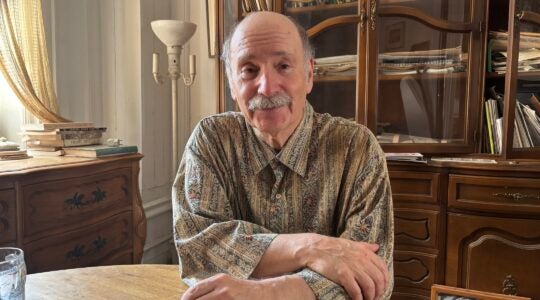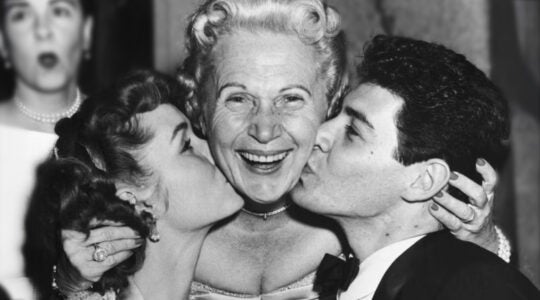Yizhar Hess has been executive director and CEO of the Masorti (Conservative) movement in Israel since 2007 and is known as one of the Israel’s leading voices promoting Jewish pluralism.
A lawyer, he has a broad range of experience in Jewish communal service. He lives in Mo’adim with his wife Yael, a colonel in the Israel Defense Forces, and their two children. The Jewish Week caught up with him during a recent visit here. This is an edited transcript.
Q: According to the recent Pew Research Center poll of American Jews, the Conservative movement is now the choice of only 18 percent of American Jews, down from 39 percent some 20 years ago. How is the movement doing in Israel?
A: We are growing. We now have 68 congregations. Most were formed in the field and they then reached out to us. In the last 18 months, we have added eight congregations.
For many years we had 32 or 33 congregations. In a 2012 survey by the Israel Democracy Institute, it was found that a half million Israelis identify as Conservative and a quarter million as Reform. Their previous survey in 2002 showed half that number of followers for both groups.
What is the message in these numbers?
It’s that it’s a myth that religious streams are not relevant in Israel or that the shul Israelis won’t go to is Orthodox. Today there is an openness towards the fact that there is more than one way to be Jewish.
In the U.S., we’re seeing a growth in the number of fervently Orthodox Jews. Are you seeing anything comparable?
We’re seeing a growth in Jewish fundamentalism. I believe it is our task in Israel and in North America to make sure that Jewish fundamentalism is beaten by Jewish pluralism.
Israel’s Chief Rabbinate does not recognize non-Orthodox Jewish marriages and now there appears to be growing support in Israel for civil marriages. How does the Masorti movement view that?
In our opinion, it would strengthen Jewish identity in Israel because so many Israelis prefer not to be married under the auspices of the Orthodox Chief Rabbinate. They prefer instead to go to Cyprus or Prague to have a civil marriage or not to get married at all. The Greek clerk at the marriage bureau in Cyprus can marry them and it will be recognized by the state and they will be registered as married. But a Jewish marriage by a Conservative or Reform rabbi who would officiate under a chupah — that marriage would not be recognized..
How much money does the Masorti movement receive from the Israeli government?
We need world Jewry — especially in North America — to invest in the Jewish, pluralistic nature of Zionism. If fundamentalism takes over, the Zionist dream will die. It’s a joint effort by those who live in Israel and you here.
What do you see as the major achievement of Women of the Wall in their efforts at the Kotel?
For the first time in the history of the State of Israel, Orthodox and pluralistic streams of Judaism will be able to offer religious services at the Kotel funded by the government. That will enable us to change the paradigm of what is religious practice in Israel because families will now be able to celebrate lifecycle events in a family setting in a full egalitarian way — and not with the women peaking over the mechitza [divider] standing on plastic chairs. That recognition of Reform and Conservative Judaism officially by the government is something I think would be a turning point in Israeli authenticity towards Reform and Conservative Judaism..
How close is that to happening?
We are now negotiating with people in the prime minister’s office to put together an agreement that would codify our use of the Kotel. A council in which Reform and Conservative rabbis would be in charge would run that section. That would mean that separation could be equal in this special holy place in a way that would ease tensions and bring unity to the Jewish people.
The New York Jewish Week brings you the stories behind the headlines, keeping you connected to Jewish life in New York. Help sustain the reporting you trust by donating today.




